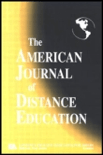
American Journal of Distance Education
Scope & Guideline
Pioneering research for a new era of online education.
Introduction
Aims and Scopes
- Exploration of Pedagogical Strategies:
The journal emphasizes the investigation of diverse pedagogical strategies that enhance teaching and learning in distance education, including innovative instructional designs and learner engagement techniques. - Impact of Technology on Learning:
AJDE frequently publishes research on the role of technology in distance education, examining how various digital tools and platforms influence learning outcomes, student engagement, and instructional effectiveness. - Diversity and Accessibility in Online Learning:
The journal highlights the importance of diversity, equity, and accessibility in online education, addressing the unique challenges faced by different student demographics, including those with disabilities and first-generation college students. - Assessment and Evaluation in Distance Education:
Research related to the assessment of student performance, satisfaction, and self-efficacy in online learning environments is a core theme, contributing to the understanding of educational quality and effectiveness. - Institutional and Policy Perspectives:
AJDE provides insights into institutional practices, policies, and management strategies that affect the deployment and sustainability of distance education programs.
Trending and Emerging
- Mental Health and Wellbeing in Online Learning:
Recent publications show a growing interest in the mental health and social-emotional wellbeing of students in online settings, recognizing the importance of addressing psychological factors that influence learning. - Diversity, Equity, and Inclusion (DEI) Initiatives:
There is a marked increase in research focusing on DEI initiatives within online education, emphasizing the need for inclusive practices that support diverse learner populations. - Quality Assurance and Accreditation in Online Programs:
Emerging discussions around quality assurance frameworks and accreditation processes for online programs highlight the importance of maintaining high standards in distance education. - Use of Analytics and Artificial Intelligence:
The application of learning analytics and artificial intelligence to enhance student engagement and personalize learning experiences is becoming a prominent area of exploration, reflecting technological advancements. - Innovative Pedagogical Models:
There is a trend towards investigating innovative pedagogical models, such as heutagogy and blended learning, that adapt to the needs of contemporary learners in digital environments.
Declining or Waning
- Traditional Classroom Comparisons:
Research comparing traditional face-to-face classroom settings with online modalities has seen a decline, as the focus shifts towards more integrated approaches that blend online and in-person learning. - Generalized Technology Assessments:
Studies that broadly assess technology's impact on education without specific contextual applications are becoming less frequent, suggesting a move towards more nuanced and specific investigations. - Historical Perspectives on Distance Education:
While historical analyses have provided valuable insights, there has been a noticeable decrease in publications focusing on the historical evolution of distance education, as contemporary issues take precedence. - General Distance Education Effectiveness Studies:
Broad studies evaluating the effectiveness of distance education as a whole are diminishing, as researchers increasingly concentrate on specific variables, demographics, or instructional strategies.
Similar Journals

Medical Science Educator
Innovating education to empower future healthcare leaders.Medical Science Educator, published by SpringerNature, is an esteemed journal committed to advancing the intersection of educational methodologies and medical science. With a significant impact in its field, this journal holds a Q2 ranking in both Education and Medicine (miscellaneous) categories as of 2023, reflecting its dedication to high-quality research and scholarly dialogue. Operating in a digital format, the journal uniquely facilitates access to pivotal studies from its inception in 2011 until 2024, fostering innovation in medical education. The latest rankings highlight its credibility, placing it at the 63rd percentile in Social Sciences - Education and the 56th percentile in Medicine - Medicine (miscellaneous) within Scopus. This platform serves as an invaluable resource for educators, researchers, and practitioners aiming to enhance teaching practices and shape the future of medical education.
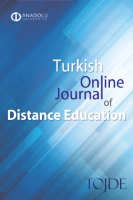
Turkish Online Journal of Distance Education
Empowering Educators through Open Access Insights.Turkish Online Journal of Distance Education, a distinguished publication from ANADOLU UNIVERSITY, serves as a vital resource in the field of distance education, contributing significantly to the ongoing discourse since its inception in 2000. With an impressive impact factor that reflects its standing within the academic community, this open access journal provides an influential platform for researchers, educators, and practitioners to disseminate innovative findings and educational strategies. Ranked in the Q2 category within the education sector according to the 2023 quartile rankings, and boasting a commendable position of #423 out of 1543 in Scopus' Social Sciences Education rankings, the journal places itself firmly within the 72nd percentile of its cohort. Spanning from 2004 to 2024, the journal's commitment to advancing scholarship in distance education is reflected not only in its comprehensive articles but also in its responsive engagement with contemporary educational challenges. Positioned in Eskişehir, Turkey, this journal aims to elevate discussions surrounding online learning and contributes to the global dialogue on education accessibility and innovation.
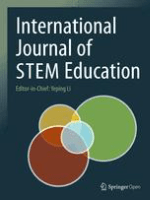
International Journal of STEM Education
Transforming Educational Practices with Cutting-Edge ResearchThe International Journal of STEM Education, published by Springer, is a leading open-access journal dedicated to advancing the field of STEM (Science, Technology, Engineering, and Mathematics) education. With its ISSN 2196-7822 and e-ISSN 2196-7822, the journal has established a significant presence in its domain since its launch in 2014, operating with an increased depth of scholarship through 2024. Hailing from Switzerland and addressing a global audience, the journal has achieved a remarkable ranking of Q1 in Education for 2023, placing it in the top tier of its field. The journal is ranked 26th out of 1543 in Social Sciences - Education according to Scopus metrics, highlighting its influence in shaping contemporary educational practices. By offering a platform for high-quality research articles, reviews, and case studies, the International Journal of STEM Education aims to promote effective teaching methodologies and innovation in STEM pedagogy, catering to researchers, educators, and policy makers alike. The commitment to open access ensures that the knowledge generated is readily available, fostering collaboration and dissemination of cutting-edge developments in STEM education.

International Journal of Technology in Education
Exploring the Future of Learning and TechnologyThe International Journal of Technology in Education, published by the International Society for Technology Education & Science (ISTES), serves as a vital platform for researchers, educators, and practitioners devoted to the intersection of technology and educational practices. With an E-ISSN of 2689-2758, this journal aims to showcase innovative research, case studies, and theoretical contributions that explore how emerging technologies can enhance teaching and learning. Although specific metrics like impact factor and HIndex are currently unavailable, the journal is committed to rigorous peer review and high academic standards, ensuring that all published work contributes meaningfully to the evolving landscape of educational technology. As an open-access journal, it strives to make research widely available, fostering collaboration and knowledge sharing among its audience. Whether you are a researcher exploring new horizons or a professional seeking practical applications of technology in education, the International Journal of Technology in Education is an indispensable resource.
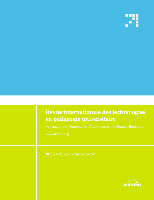
International Journal of Technologies in Higher Education
Pioneering Research for Tomorrow's Educational PracticesInternational Journal of Technologies in Higher Education, with ISSN 1708-7570 and E-ISSN 1708-7570, is a distinguished academic platform dedicated to advancing the intersection of technology and pedagogy in higher education. Published by INT JOURNAL TECHNOLOGIES HIGHER EDUCATION, this open-access journal has been at the forefront of educational innovation since 2004, providing researchers, practitioners, and students access to high-quality research without financial barriers. The journal aims to disseminate cutting-edge studies, best practices, and theoretical insights that explore the transformative impact of emerging technologies in the field of education. Situated in Montreal, Canada, the journal serves as a pivotal resource for those committed to enhancing learning environments through technological advancements. By fostering scholarly discussion and collaboration, the International Journal of Technologies in Higher Education plays an essential role in shaping the future of educational practices globally.

ADVANCES IN HEALTH SCIENCES EDUCATION
Shaping the Future of Health Education through ResearchADVANCES IN HEALTH SCIENCES EDUCATION, published by SPRINGER, is an esteemed journal that stands at the forefront of educational research within the health sciences domain. With its ISSN 1382-4996 and E-ISSN 1573-1677, this journal has established itself as a vital resource for those committed to improving medical and health education. As a Q1 journal in both Education and Medicine (miscellaneous) categories in 2023, it boasts a prestigious standing in its field, ranked in the 91st percentile among the top educational journals on Scopus, firmly placing it within the global academic discourse. Aimed at researchers, professionals, and students, the journal publishes high-quality articles that promote innovation and best practices in health sciences education, reflecting a commitment to enhancing teaching and learning practices. With coverage from 1996 to 2024, it continues to provide a robust platform for progressive educational strategies in health. For those looking to advance their understanding of educational methodologies in health care, ADVANCES IN HEALTH SCIENCES EDUCATION remains an indispensable resource.

Educacion XX1
Shaping the Future of Learning with Rigorous ResearchEducacion XX1 is a premier academic journal dedicated to the field of education, published by UNIV NACIONAL EDUCACION DISTANCIA in Spain. With an impressive impact factor and recognition in the Q1 category for 2023 in education, this open-access journal has served as a significant platform for innovative research since 2000. The journal aims to share high-quality empirical studies, theoretical discussions, and reviews that address contemporary educational challenges, promoting a deeper understanding of pedagogical practices and policies. As evidenced by its Scopus ranking of #122/1543 in Social Sciences - Education, along with a notable percentile of 92, Educacion XX1 continues to contribute to the scholarly community while fostering global discourse and collaboration. With a diverse range of articles covering various topics and perspectives, this journal is invaluable for researchers, professionals, and students alike, providing insights essential to advancing education in today’s rapidly evolving landscape.

Innoeduca-International Journal of Technology and Educational Innovation
Unlocking Potential: Innovative Practices for Modern LearningInnoeduca - International Journal of Technology and Educational Innovation, published by the esteemed Universidad de Málaga, stands at the forefront of the rapidly evolving intersection of technology and education. With an E-ISSN of 2444-2925, this open-access journal has proudly disseminated cutting-edge research and innovative practices in educational technology since 2015. It aims to empower researchers, educators, and policymakers by providing a platform for sharing knowledge, insights, and advancements that enhance the learning experience through technology. The journal covers a wide array of topics, including digital learning environments, instructional design, and the impact of emerging technologies on education. By offering free access to its articles, Innoeduca fosters a global dialogue among professionals and students alike, making a significant contribution to the field of education innovation and technology.
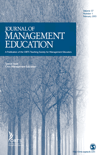
Journal of Management Education
Advancing the Future of Management EducationJournal of Management Education, published by SAGE Publications Inc, stands as a premier platform for disseminating high-quality research in the fields of management and education. With an ISSN of 1052-5629 and an e-ISSN of 1552-6658, this influential journal spans publications from 1975 to 2024, ensuring a comprehensive archive of scholarly work. Researchers and educators will find the journal particularly valuable, given its classification in the Q2 category for both Business, Management and Accounting and Education, reflecting its strong reputation and impact within these fields. With a Scopus ranking placing it in the 75th percentile for Education and 64th percentile for Business, the journal serves as an essential resource for those seeking to contribute to the advancement of management education. Although currently not an open-access journal, it offers researchers the chance to engage with critical insights that shape the pedagogical landscape in management. Situated in Thousand Oaks, California, the Journal of Management Education remains a pivotal reference for academia, practitioners, and students aiming to enhance their understanding of management practices and educational methodologies.

International Journal of Education and Information Technologies
Bridging the Gap between Learning and TechnologyWelcome to the International Journal of Education and Information Technologies, a leading academic platform published by NORTH ATLANTIC UNIV UNION-NAUN. With an emphasis on the integration of education and information technology, this journal aims to foster innovative research and discussions that enhance pedagogical practices and technological advancements in educational contexts. Although currently an open access journal, it provides unrestricted access to emerging studies that are crucial for educators, researchers, and professionals aiming to stay at the forefront of education technology. While specific metrics such as H-index and Scopus ranks are yet to be defined, its ISSN 2074-1316 signifies its credibility and commitment to quality scholarship. This journal serves as a vital resource for those passionate about bridging the gap between technology and education, encouraging impactful research that shapes the future of learning environments.